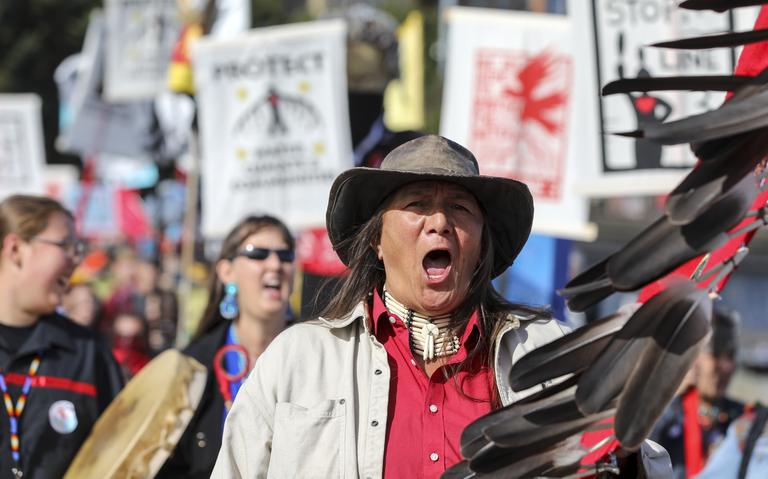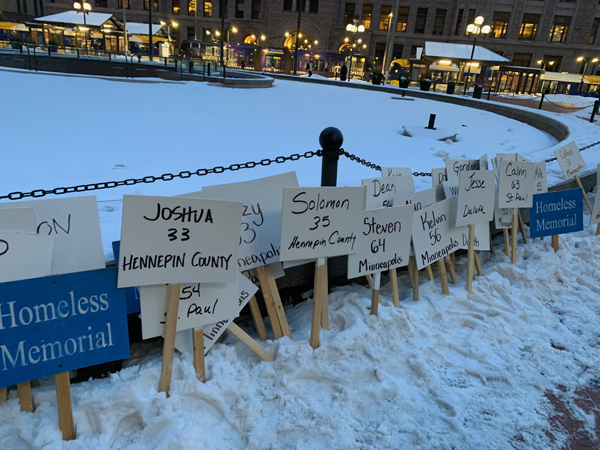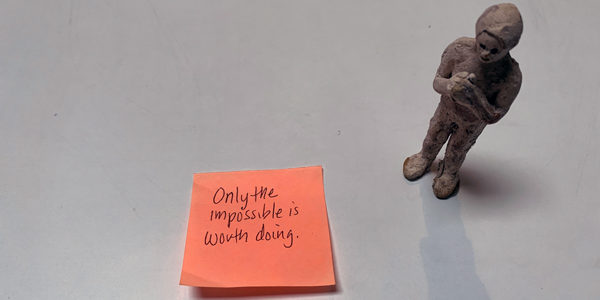On this last day of the monodiet of mung dal and rice, it’s worthwhile to consider, why did I do this? And did I achieve what I’d intended?
First, it’s important to note that eating along mung dal and rice (plus the banana and riced cauliflower I added today) is not about purification. While that may be one of the effects, it’s not the purpose. No, what I’m working on will have a far more universal outcome.
I’m preparing mind, body and soul for a revolution.

As I stated in my post for day 2, we have a lot of impossible to make possible in the next decade. This new year, 2020, we need a groundswell of people like you and me to join together and pull the rug out from under the power structure that systematically condones or promotes environmental and social injustice.
Life as we know it is in grave trouble. Here are headlines from today:
- “Trump Rule Would Exclude Climate Change in Infrastructure Planning” (Translation for Minnesota: Free pass to Enbridge for the Line 3 pipeline)
- “Millions of Australians Are Choking on Smoke From Wildfires” (This ground zero for climate catastrophe is a sneak preview of our future in the U.S.)
Homelessness is epidemic. More than 10,000 people are homeless on any given day in Minnesota, and last year, at least 100 people died while homeless in Minnesota.

While some of us rely on faith to guide our way, hope is the common driver. In a recent sermon, Jered Weber-Johnson eased my despair when he shared this quote from the gifted writer Rebecca Solnit:
“I say all this because hope is not like a lottery ticket you can sit on the sofa and clutch, feeling lucky. I say it because hope is an ax you break down doors with in an emergency; because hope should shove you out the door, because it will take everything you have to steer the future away from endless war, from the annihilation of the earth’s treasures and the grinding down of the poor and marginal. Hope just means another world might be possible, not promised, not guaranteed. Hope calls for action; action is impossible without hope.”
Rebecca Solnit, Hope in the Dark
If you’re feeling overwhelmed by so much change needed in this world, I highly recommend reading Hope in the Dark. Solnit’s thesis is that radicals have a long, neglected history of transformative victories, that the positive consequences of our acts are not always immediately seen, directly knowable, or even measurable. She gives countless examples of how the acts of an individual (think Greta Thunberg) led to a much larger chain reaction and changes such as the right for women to vote, the end to slavery, environmental protections, gay marriage…the list goes on.

Buff Grace, an environmental activist and Episcopal priest who never fails to inspire me, posed a provocative question recently on Facebook: “What if history was a gambler, instead of a force in a laboratory experiment, and you his ace in the hole?”
I’m going with the assumption we are history’s ace in the hole. There’s too much at stake to underestimate our ability to create significant change. This is no time to sit on the sofa, clutching hope like a lottery ticket. Let’s wield hope like an ax and break down the doors of apathy. Let’s release love and act with compassion for all beings. Let’s be the change we want to see.
Are you in?
